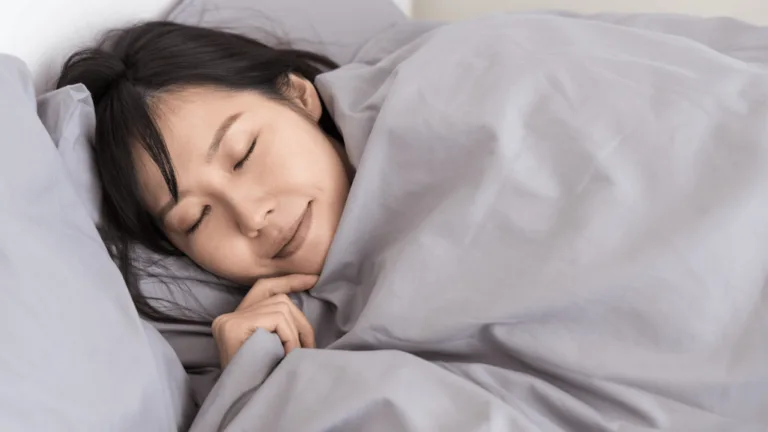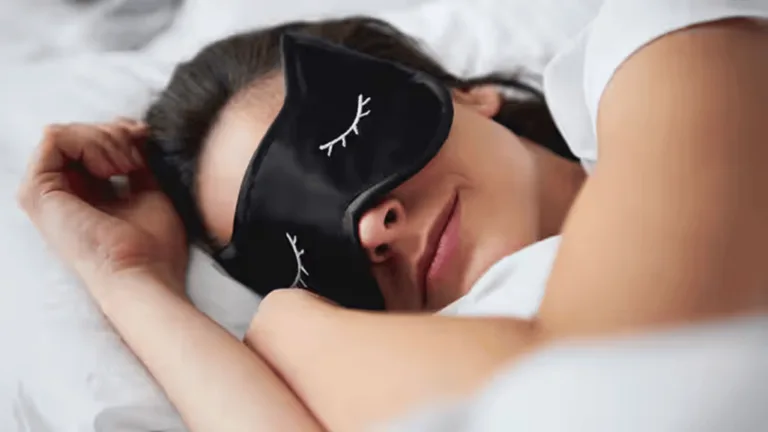In today’s fast-paced world, getting a good night’s sleep has become a luxury for many. With over 60 million Americans suffering from poor sleep quality, it’s no wonder that people are turning to natural sleep aids like melatonin for help. Melatonin, a hormone naturally released in the brain about four hours before bedtime, has been shown to be an effective sleep supplement and circadian rhythm regulator.
Research indicates that melatonin supplements can decrease the time it takes to fall asleep, increase feelings of sleepiness, and potentially extend the duration of sleep. As a natural sleep aid, melatonin is particularly beneficial for those experiencing sleep difficulties due to jet lag, shift work, or circadian rhythm disorders. With the recommended dosage of 1 to 3 milligrams taken two hours before bedtime, melatonin has helped countless individuals improve their sleep quality and wake up feeling refreshed.
Key Takeaways
- Melatonin is a hormone naturally produced in the brain that regulates the sleep-wake cycle
- As a sleep supplement, melatonin can help reduce the time it takes to fall asleep and improve overall sleep quality
- Melatonin is especially useful for individuals with sleep issues related to jet lag, shift work, or circadian rhythm disorders
- The recommended dosage of melatonin is 1 to 3 milligrams, taken two hours before bedtime
- While generally safe for short-term use, it’s essential to consult a healthcare professional before starting any new supplement regimen
Understanding Melatonin’s Role in Sleep Regulation
Melatonin, a hormone produced by the pineal gland in the brain, plays a vital role in regulating our sleep-wake cycles. This small but powerful gland is responsible for synthesizing and secreting melatonin, which helps to synchronize our internal biological clock with the external environment. As the sun sets and darkness falls, the pineal gland begins to increase melatonin production, signaling to our bodies that it’s time to prepare for sleep.
The Pineal Gland and Melatonin Production
The pineal gland, located in the center of the brain, is often referred to as the “third eye” due to its light-sensitive properties. This gland is activated by the suprachiasmatic nucleus (SCN), a central circadian clock in the hypothalamus that tunes our innate physiological rhythms to the 24-hour light-dark cycle. As darkness falls, the SCN signals the pineal gland to begin producing melatonin, which is then released into the bloodstream.
Melatonin production is inhibited by light exposure, particularly blue light emitted by electronic devices. This is why it’s essential to limit screen time before bed and create a dark, quiet environment conducive to sleep. As melatonin levels rise, we begin to feel drowsy and our body temperature drops slightly, preparing us for a restful night’s sleep.
Circadian Rhythms and the Sleep-Wake Cycle
Melatonin plays a crucial role in regulating our circadian rhythms, the internal 24-hour cycles that govern various physiological processes, including the sleep-wake cycle. The SCN acts as a central pacemaker, synchronizing these rhythms with the external light-dark cycle. Melatonin, often referred to as the “darkness hormone,” helps to reinforce these rhythms by signaling to the body that it’s time to sleep.
The sleep-wake cycle consists of two main stages: rapid eye movement (REM) sleep and non-rapid eye movement (NREM) sleep. NREM sleep is further divided into three stages, with slow-wave sleep (SWS) indicating the deepest, most restorative stage. Melatonin helps to facilitate the transition between wakefulness and sleep, promoting the onset of NREM sleep and enhancing overall sleep quality.
| Sleep Stage | Characteristics | Melatonin’s Role |
|---|---|---|
| NREM Stage 1 | Light sleep, easy to wake up | Facilitates transition from wakefulness to sleep |
| NREM Stage 2 | Deeper sleep, heart rate and breathing slow down | Promotes progression into deeper sleep stages |
| NREM Stage 3 (SWS) | Deepest, most restorative sleep | Enhances slow-wave activity and sleep quality |
| REM Sleep | Dreams occur, eyes move rapidly, muscles are paralyzed | Indirectly influenced by melatonin’s circadian effects |
By understanding the intricate relationship between the pineal gland, melatonin production, and our 24-hour sleep-wake cycles, we can take steps to optimize our sleep quality and overall well-being. Ensuring a consistent sleep schedule, creating a relaxing bedtime routine, and minimizing exposure to artificial light in the evening can all help to support healthy melatonin levels and promote more restful sleep.
Factors That Can Suppress Melatonin Production
While melatonin plays a crucial role in regulating our sleep-wake cycle, various factors can interfere with its production and lead to sleep disturbances. By understanding these influences, we can take proactive steps to optimize our melatonin levels and enhance the quality of our rest. Let’s explore some key factors that can suppress melatonin production and their potential impact on our sleep and overall well-being.
Exposure to Artificial Light at Night
One of the most significant factors that can disrupt melatonin production is exposure to artificial light at night. In our modern world, we are constantly surrounded by the glow of electronic devices, such as smartphones, laptops, and televisions. The blue light emitted by these screens can trick our brains into thinking it’s daytime, suppressing melatonin secretion and making it harder to fall asleep. Research has shown that exposure to white light of 460-480 nm at levels as low as 30 lux can effectively suppress melatonin production. To minimize this effect, it’s essential to limit screen time before bed and consider using blue light-blocking glasses or installing apps that reduce the blue light emitted by your devices.
“Light exposure can suppress melatonin secretion in humans.” – Lewy et al., 1980
Aging and Its Impact on Melatonin Levels
As we age, our bodies undergo various changes, including a decline in melatonin production. Studies have revealed that melatonin levels tend to peak in early childhood and gradually decrease throughout adulthood. This natural decline can contribute to the sleep disturbances and altered sleep patterns commonly experienced by older individuals. While aging is an inevitable process, maintaining a consistent sleep schedule, creating a relaxing bedtime routine, and optimizing your sleep environment can help support healthy melatonin levels and improve sleep quality as you age. Incorporating sleep health solutions tailored to your unique needs can also make a significant difference in promoting restful sleep.
Certain Diseases and Melatonin Suppression
Certain health conditions can also impact melatonin production and lead to sleep disturbances. For example, individuals with type 2 diabetes may experience lower melatonin levels due to variations in the MTNR1B gene, which is associated with increased fasting plasma glucose levels. Additionally, conditions such as depression, anxiety, and chronic pain can disrupt sleep patterns and suppress melatonin secretion. If you are struggling with a health issue that affects your sleep, it’s crucial to work closely with your healthcare provider to develop a comprehensive treatment plan that addresses both your underlying condition and your sleep concerns.
| Factor | Impact on Melatonin |
|---|---|
| Light Exposure | Suppresses melatonin secretion, especially short wavelengths (460-480 nm) |
| Aging | Melatonin levels naturally decline with age |
| Certain Diseases (e.g., Type 2 Diabetes) | Variations in MTNR1B gene associated with lower melatonin levels |
| Medications (e.g., Antidepressants, Benzodiazepines) | Can interfere with melatonin production and secretion |
| Lifestyle Factors (e.g., Smoking, Alcohol, Caffeine) | Can disrupt melatonin production and delay its clearance |
By understanding the factors that can suppress melatonin production, we can take proactive steps to optimize our sleep environment, lifestyle habits, and overall health. Prioritizing sleep hygiene, minimizing artificial light exposure in the evening, and addressing any underlying health concerns can go a long way in supporting healthy melatonin levels and promoting more restful, restorative sleep.
Benefits of Melatonin Supplements for Sleep
If you’ve been struggling with sleep issues, melatonin supplements may offer a natural solution to help you get the restful sleep your body needs. Melatonin, a hormone produced by the pineal gland, plays a crucial role in regulating your sleep-wake cycle. By supplementing with melatonin, you can experience a range of benefits that can transform your sleep quality and help you wake up feeling refreshed and energized.
Falling Asleep Faster and Staying Asleep Longer
One of the primary benefits of melatonin supplements is their ability to help you fall asleep faster. If you’ve ever spent hours tossing and turning, unable to drift off, you know how frustrating it can be. Melatonin works by signaling to your body that it’s time to sleep, making it easier to relax and unwind. In a meta-analysis conducted in 2020, melatonin treatment post-operatively resulted in reduced pain and perioperative opioid use, highlighting its potential as an effective insomnia treatment.
Not only can melatonin help you fall asleep faster, but it can also help you stay asleep longer. If you frequently wake up in the middle of the night and struggle to get back to sleep, melatonin may be able to help. Extended-release melatonin is available for individuals who have trouble staying asleep and need assistance throughout the night.
Improving Overall Sleep Quality
In addition to helping you fall asleep faster and stay asleep longer, melatonin supplements can also improve your overall sleep quality. When you get high-quality sleep, you wake up feeling more rested, alert, and ready to tackle the day ahead. Melatonin has been shown to increase the amount of time spent in deep, restorative sleep stages, which is crucial for physical and mental recovery.
A study conducted in 1984 found that the effects of chronic, small doses of melatonin given in the late afternoon reduced fatigue in humans, showcasing its potential for sleep quality improvement. By enhancing your sleep quality, melatonin can help you feel more energized and productive throughout the day.
Helping with Jet Lag and Shift Work Adjustment
Melatonin supplements are particularly beneficial for individuals dealing with jet lag or adjusting to shift work. Jet lag occurs when you travel across time zones, disrupting your body’s internal clock. By taking melatonin at the appropriate time, you can help reset your sleep-wake cycle and adapt to the new time zone more quickly, making it an effective jet lag remedy.
Similarly, shift workers often struggle with sleep issues due to their irregular work schedules. Melatonin can help regulate their sleep patterns and improve sleep quality, even when their work hours don’t align with traditional sleep times.
| Benefit | Description |
|---|---|
| Falling Asleep Faster | Melatonin signals to the body that it’s time to sleep, making it easier to relax and unwind. |
| Staying Asleep Longer | Extended-release melatonin can help individuals who have trouble staying asleep throughout the night. |
| Improving Sleep Quality | Melatonin increases time spent in deep, restorative sleep stages, leading to more restful sleep. |
| Jet Lag Remedy | Melatonin helps reset the sleep-wake cycle and adapt to new time zones more quickly. |
| Shift Work Adjustment | Melatonin regulates sleep patterns and improves sleep quality for shift workers with irregular schedules. |
By incorporating melatonin supplements into your sleep routine, you can unlock a world of benefits that can transform your sleep quality and overall well-being. Whether you’re struggling with insomnia, jet lag, or shift work adjustment, melatonin may be the natural solution you’ve been looking for to get the restful, rejuvenating sleep your body craves.
How to Use Melatonin for Sleep Effectively
For optimal melatonin usage, creating the right environment and establishing a consistent bedtime routine are key. Dimming the lights and avoiding electronic devices that emit blue and green light can help signal to your body that it’s time to wind down. Incorporating melatonin into a relaxing pre-sleep ritual, such as taking a warm bath or reading a book, can further enhance its sleep-promoting effects.
When starting melatonin, it’s best to begin with a low dose and gradually increase if needed. This approach allows you to find the minimum effective dose for your individual needs, minimizing the risk of side effects. While melatonin is generally considered safe for short-term use, it’s essential to consult with a healthcare professional before starting any new supplement, especially if you have underlying health conditions or are taking medications.
The timing of melatonin intake is crucial for its effectiveness. For jet lag, taking melatonin upon arrival at your destination can help reset your internal clock. Shift workers may benefit from taking melatonin at the end of their night shift to promote daytime sleep.
To optimize your sleep environment and support melatonin’s effects:
- Keep your bedroom dark, quiet, and cool
- Establish a consistent sleep schedule, even on weekends
- Avoid caffeine, alcohol, and heavy meals close to bedtime
- Engage in regular exercise, but not too close to bedtime
By implementing these strategies and using melatonin judiciously, you can harness its potential for sleep enhancement and establish a healthy bedtime routine. Remember, while melatonin can be a helpful tool, it’s not a long-term solution for chronic sleep issues. If sleep problems persist, it’s important to consult with a healthcare professional to identify and address any underlying causes.
Recommended Dosage and Timing of Melatonin Supplements
When considering using melatonin supplements to improve sleep, it’s crucial to understand the recommended dosage and timing for optimal results. With more than 50% of adults experiencing trouble falling or staying asleep at least a few times per week, finding the right melatonin dosage and supplement timing can make a significant difference in achieving better rest.
Starting with Low Doses and Adjusting as Needed
Melatonin supplements typically come in doses ranging from 1 mg to 10 mg. However, it’s essential to start with the lowest effective dose and adjust as needed. A personalized approach is key, as the ideal dosage can vary from person to person. It’s recommended to begin with a low dose of 0.3 mg to 5 mg and gradually increase if necessary.
A 2017 study testing over 30 different melatonin supplements found discrepancies in the amount of melatonin listed on the label and the actual content, as well as the presence of other undisclosed ingredients in some products.
This highlights the importance of choosing a reputable brand and consulting with a healthcare professional to determine the most appropriate dosage for your individual needs.
Taking Melatonin at the Right Time Before Bedtime
In addition to finding the right dosage, taking melatonin at the optimal time is crucial for its effectiveness. It’s generally recommended to take melatonin supplements about 30 minutes to 2 hours before your desired bedtime. This allows the hormone to be absorbed and reach peak levels in your body, promoting sleepiness and helping you fall asleep faster.
For those with delayed sleep-wake phase disorder, taking a low dose of about 0.5 mg an hour before the desired bedtime may help them go to sleep earlier. A leg elevation pillow can also provide additional comfort and support for a more restful night’s sleep.
| Age Group | Recommended Melatonin Dosage |
|---|---|
| Adults | 0.3 mg – 5 mg |
| Older Adults | Lower doses (0.3 mg – 2 mg) to avoid daytime drowsiness |
| Children with sleep disorders | Consult a pediatrician for appropriate dosage |
Remember, while melatonin is generally considered safe for most people in the short term, it’s always best to consult with a healthcare professional to determine the most suitable dosage and supplement timing for your individual needs and to discuss any potential interactions with existing medications or health conditions.
Potential Side Effects and Precautions
While melatonin is generally considered safe for short-term use, it’s essential to be aware of potential melatonin side effects and precautions. Most people will not experience any adverse reactions, but common side effects like feeling sleepy or tired during the daytime can occur in some users. Serious side effects are rare, affecting less than 1 in 1,000 people.
Interactions with Medications and Health Conditions
Melatonin can interact with certain medications, such as blood thinners, immunosuppressants, and diabetes drugs. It’s crucial to consult with a healthcare provider before taking melatonin, especially if you have any underlying health conditions or are taking other medications. People with autoimmune disorders, seizure disorders, or depression should exercise caution and seek medical advice prior to using melatonin supplements.
Some key drug interactions to be aware of include:
- Fluvoxamine, ramelteon, or tasimelteon
- Alcohol and caffeine
- Certain antibiotics
- Medications for depression and anxiety
- Female hormones
Patients using melatonin should monitor their symptoms and consult their care team if their condition does not improve or worsens. It is not recommended to take melatonin for more than 2 weeks without professional medical advice.
Avoiding Long-Term Use without Medical Supervision
Long-term use of melatonin without medical supervision is not recommended, as it may lead to dependence or have unintended consequences. While melatonin is commonly promoted for sleep disorders like insomnia or jet lag, it is not intended to diagnose, treat, cure, or prevent any disease. Melatonin should be part of a comprehensive approach to improving sleep quality, which includes lifestyle factors like maintaining a consistent sleep schedule, creating a relaxing bedtime routine, and minimizing exposure to blue light in the evening.
| Side Effect | Prevalence |
|---|---|
| Drowsiness | Common |
| Headache | Common |
| Dizziness | Common |
| Nausea | Common |
| Anaphylaxis (severe allergic reaction) | Rare |
If you experience any severe side effects, such as difficulty breathing or swelling of the face, seek immediate medical attention. Reporting any suspected adverse reactions through official channels, like the Yellow Card safety scheme, can help improve the safety profile of melatonin supplements.
Always prioritize your health and well-being by consulting with a healthcare professional before starting any new supplement regimen, including melatonin. Together, you can develop a personalized plan that optimizes your sleep quality while minimizing potential risks.
Natural Ways to Boost Melatonin Production
While melatonin supplements can be an effective tool for improving sleep, there are also natural ways to support your body’s melatonin production. By making a few simple lifestyle changes, you can encourage your pineal gland to produce more of this essential sleep hormone, leading to better sleep quality and overall health.
Maintaining a Consistent Sleep Schedule
One of the most important steps in supporting natural melatonin production is maintaining a consistent sleep schedule. By going to bed and waking up at the same time every day, even on weekends, you help regulate your body’s internal clock, or circadian rhythm. This consistency sends a clear signal to your pineal gland, promoting the production of melatonin at the right times.
Creating a Relaxing Bedtime Routine
Establishing a relaxing bedtime routine can also help boost your body’s melatonin levels. Engaging in calming activities like taking a warm bath, reading a book, or practicing gentle yoga can signal to your body that it’s time to wind down and prepare for sleep. These activities promote a sense of relaxation, which can encourage the natural release of melatonin.
| Bedtime Routine Activity | Benefits |
|---|---|
| Warm Bath | Relaxes muscles, lowers body temperature, and promotes sleepiness |
| Reading | Reduces stress, calms the mind, and provides a distraction from worries |
| Gentle Yoga | Stretches the body, reduces tension, and promotes a sense of calm |
Minimizing Exposure to Blue Light in the Evening
Another crucial factor in supporting natural melatonin production is minimizing your exposure to blue light in the evening. Blue light, which is emitted by electronic devices like smartphones, tablets, and computers, can suppress melatonin production, making it harder to fall asleep. By avoiding these devices for at least an hour before bedtime and using blue light-blocking glasses or apps, you can help protect your body’s natural melatonin levels.
Exposure to blue light at night, including from electronic devices emitting blue light, may suppress melatonin production; a 2019 study found that 2 hours of exposure to blue light at night suppressed melatonin production.
By incorporating these natural strategies for boosting melatonin production into your daily routine, you can support your body’s innate ability to regulate sleep and promote better sleep hygiene. Remember, while melatonin supplements can be helpful, they should be used in conjunction with healthy lifestyle habits for optimal results.
When to Consult a Doctor About Sleep Issues
While melatonin supplements can be an effective natural remedy for occasional sleep difficulties, it’s crucial to recognize when it’s time to seek medical consultation for persistent insomnia or other sleep disorders. If you find that your sleep issues are occurring at least three nights per week for more than three months, it’s considered chronic insomnia and warrants a discussion with your doctor.
Chronic insomnia can have a significant impact on your overall health and well-being, increasing the risk of various physical and mental health problems. These may include:
- Asthma
- Weakened immune system
- Increased pain sensitivity
- Inflammation
- Obesity
- Diabetes
- High blood pressure
- Heart disease
- Depression
- Anxiety
- Poor concentration
- Irritability
- Increased risk of accidents due to fatigue
Your doctor can help identify any underlying causes of your sleep issues and develop an appropriate treatment plan. This may involve a referral to a sleep specialist or a sleep disorder center for overnight monitoring and analysis of your sleeping patterns.
The National Sleep Foundation defines good sleep quality as spending at least 85% of your time in bed asleep, falling asleep in 30 minutes or less, waking up no more than once per night, and being awake for 20 minutes or less after initially falling asleep.
If you’re consistently falling short of these benchmarks, it’s a sign that you should consult with a medical professional. They may recommend cognitive behavioral therapy (CBT) as a first-line treatment for insomnia, as it is often as effective or more effective than sleep medications and has longer-lasting benefits.
In some cases, your doctor may prescribe sleep medications for short-term use. However, it’s important to note that prescription sleeping pills are generally not recommended for long-term use, and doctors advise against relying on them for more than a few weeks.
By working closely with your healthcare provider, you can develop a comprehensive plan to address your sleep disorders and improve your overall quality of life. Don’t hesitate to seek medical consultation if you’re experiencing persistent insomnia or other sleep issues that are impacting your daily functioning.
Conclusion
Melatonin, a natural hormone produced by the pineal gland, offers a range of benefits for those seeking better sleep and overall health and well-being. As a natural sleep support, melatonin can help regulate the body’s internal clock, making it easier to fall asleep and stay asleep throughout the night. Studies have shown that melatonin supplementation can reduce sleep latency, increase total sleep time, and improve sleep quality in individuals with various sleep disorders.
Beyond its direct impact on sleep, melatonin benefits extend to other areas of health. Research suggests that healthy melatonin levels may support eye health, reduce the frequency of migraines, and even alleviate symptoms of acid reflux and tinnitus. By prioritizing sleep and maintaining a consistent sleep schedule, individuals can promote the natural production of melatonin and reap the rewards of this essential hormone.
While melatonin is generally considered safe and non-addictive, it is crucial to use supplements wisely and under the guidance of a healthcare provider. By combining melatonin supplementation with sleep-friendly habits, such as creating a relaxing bedtime routine and minimizing exposure to artificial light at night, individuals can harness the power of this natural sleep aid for optimal results. Embracing the benefits of melatonin and prioritizing sleep can lead to a more restful, rejuvenating, and healthier life.












